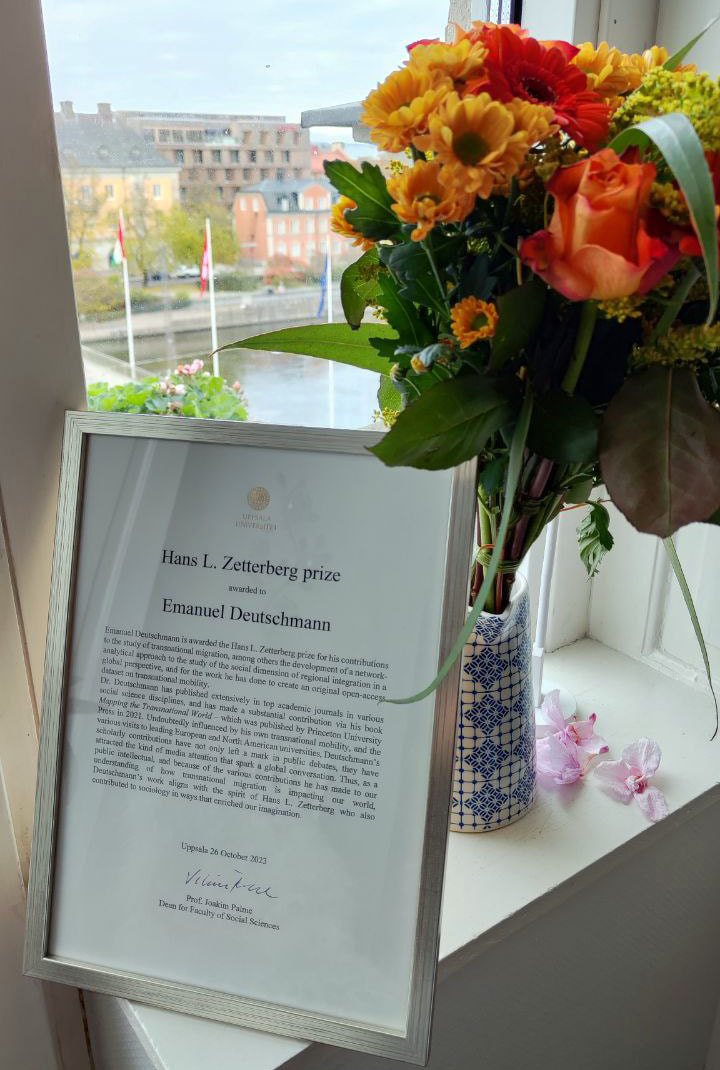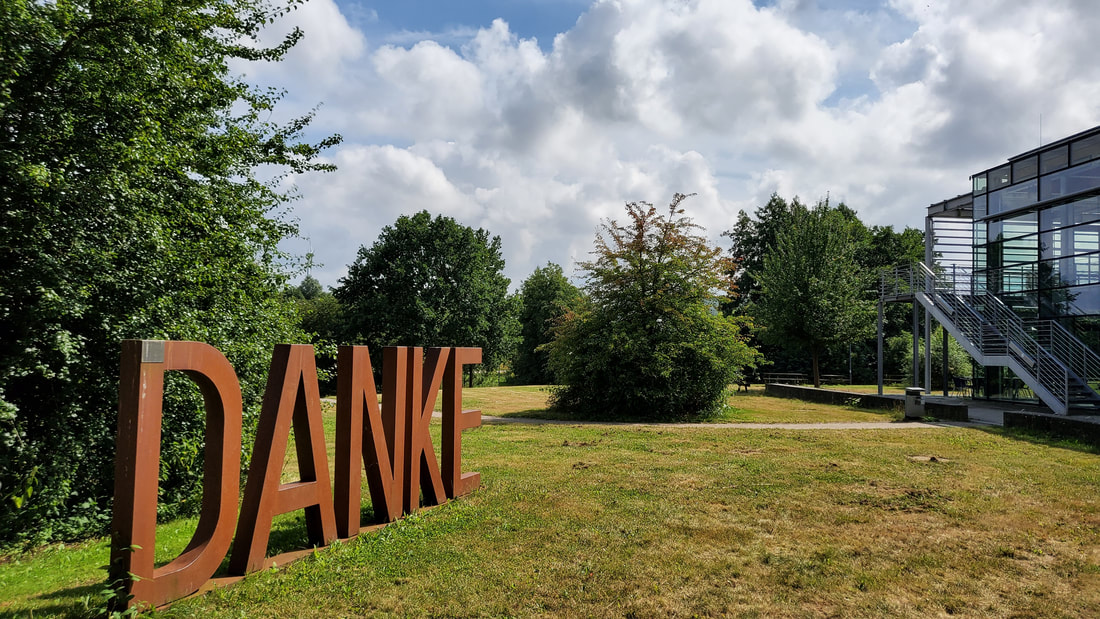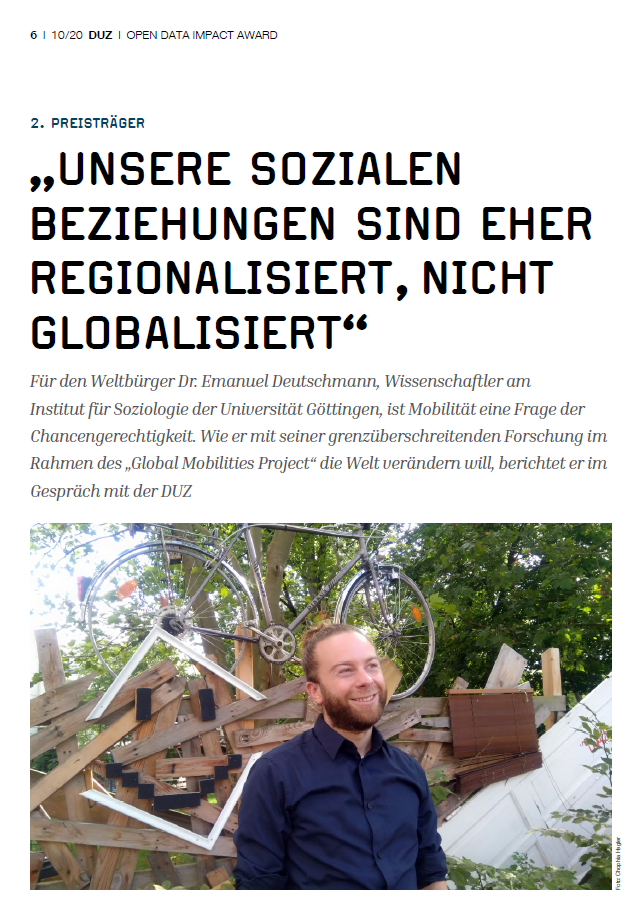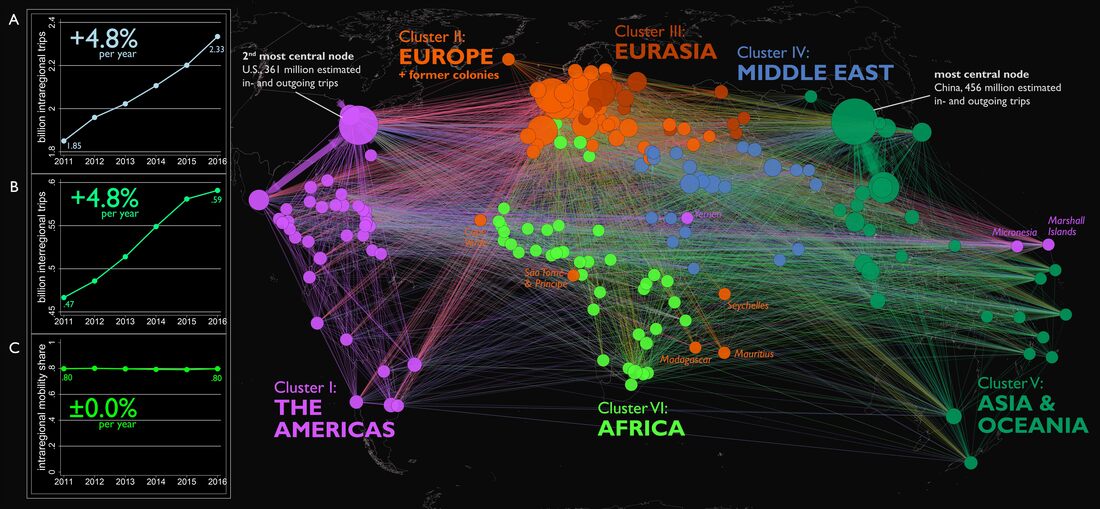"Emanuel Deutschmann is awarded the Prize for his contributions to the study of transnational migration, among others the development of a network-analytical approach to the study of the social dimension of regional integration in a global perspective, and for the work he has done to create an original open-access dataset on transnational mobility. |
|
I am honored to have received this year's Hans-L.-Zetterberg Prize in Sociology at Uppsala University. The prize is awarded yearly to a sociologist under 40, “whose scholarly work, preferably by productively combining theory and practice, has shifted the forefront of research”. The award statement says:
The Global Mobilities Project won the second prize of the Open Data Impact Award 2020 for the datasets on transnational mobility and visa costs that we made publicly available for free. The award, which is sponsored by Stifterverband für die Deutsche Wissenschaft and innOsci - Forum offene Innovationskultur is endowed with 10,000 Euros, which we will use to move the project forward. Stifterverband also produced this beautiful animated video (in German): My article "Visualizing the Regionalized Structure of Mobility between Countries Worldwide" is now published open access in Socius's innovative Visualizations series. Here, geographic mapping, algorithm-based community detection, network visualization, and conventional line plots are combined to display the network structure of more than two billion estimated trips between countries worldwide in 2016, together with information about the (non)evolution of this structure over time. The graph reveals that transnational mobility is highly regionalized: 80 percent of all human movements between countries occur within world regions. Despite strong increases in the absolute amount of transnational mobility, this share remains extremely stable between 2011 and 2016. The community detection algorithm reveals six mobility clusters that clearly correspond to world regions: Africa, Asia and Oceania, the Americas, Eurasia, Europe, and the Middle East. This stable, regionalized structure suggests that a fully globalized “world society” is unlikely to emerge, as social ties remain parochial, even in the transnational sphere.
|
Categories
All
Archives
November 2023
|




 RSS Feed
RSS Feed